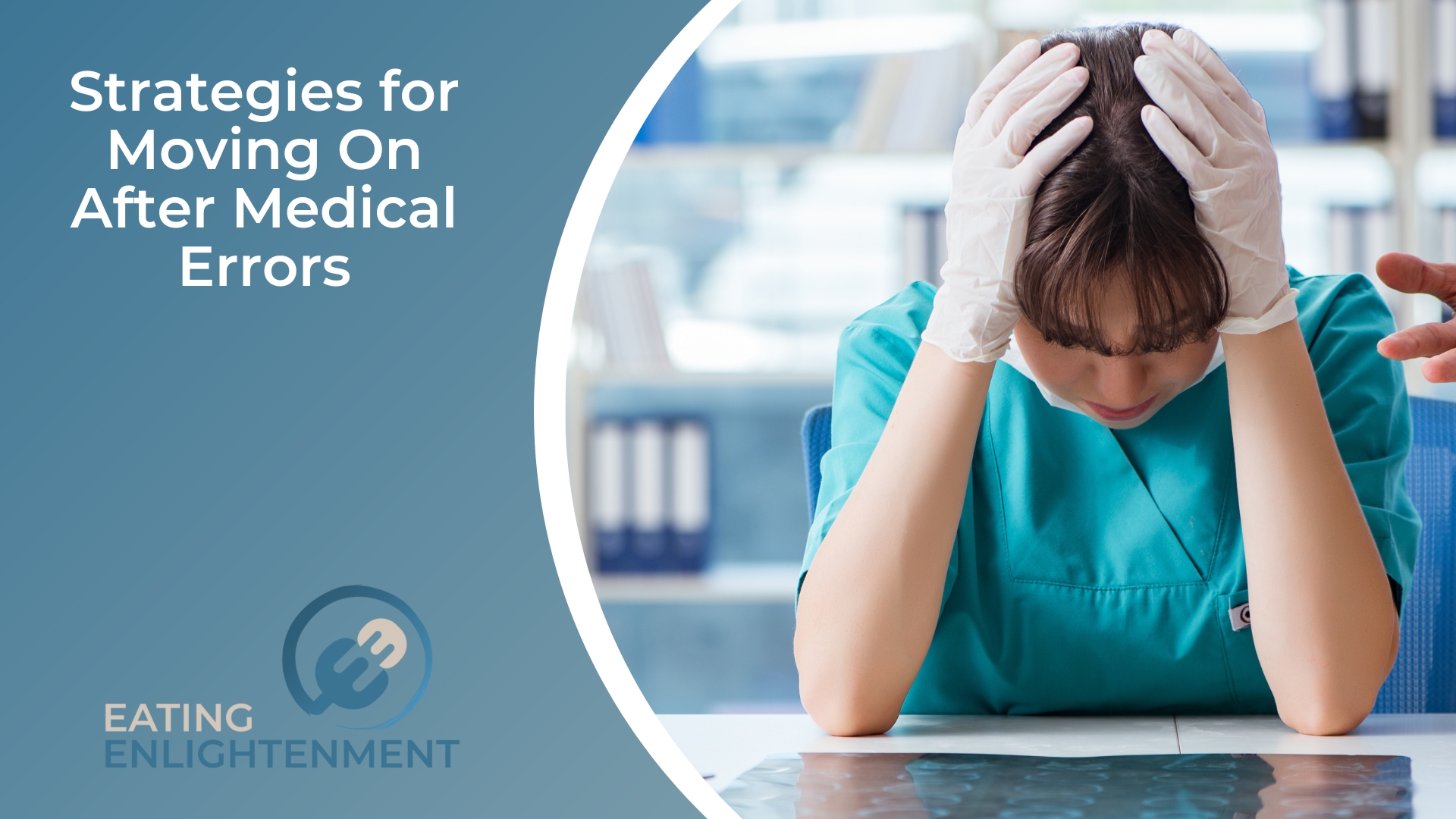Navigating the aftermath of a medical error can be an incredibly challenging process. It is heartbreaking to suddenly find yourself in a position where your health and safety are at risk due to mistakes made by medical professionals you trusted.
Even if no permanent physical damage has been done, the emotional turmoil caused by such events can linger long after the incident fades from memory.
Understanding how to handle these situations effectively is essential for those affected – which is why we’ve put together this guide featuring strategies for moving on after medical errors.

1. Seek Legal Counsel and Explore Options for Compensation
When dealing with the aftermath of a medical error, it’s crucial to secure competent legal counsel. A seasoned wrongful death attorney can assess the situation, determine negligence, and guide you through the complex legal process. Pursuing a malpractice lawsuit offers potential financial compensation and holds healthcare providers accountable, deterring future mistakes.
When seeking compensation, the goal is to rectify the damage and prevent similar errors from occurring again. An attorney can guide you through insurance claims and ensure you receive the benefits you are entitled to. Choosing a medical error specialist is essential to handle your case effectively.
2. Get Informed about the Medical Error
Gaining a thorough understanding of the medical error that occurred is a crucial step towards healing and prevention of future instances. It involves obtaining all necessary medical records, researching the specific error in question, and potentially seeking a second opinion from another healthcare professional. This knowledge enables you to make informed decisions about your health moving forward.
Moreover, it provides valuable context that can influence the direction and outcome of any legal proceedings. It can also empower you to communicate more effectively with your healthcare provider and legal counsel. Finally, understanding the medical error can also be cathartic, providing closure and helping you make peace with the incident.
3. Create a Support Network for Family
Creating a solid support network of family and friends is invaluable when overcoming the emotional strain following a medical error. Loved ones can offer comfort, empathy, and a listening ear, contributing significantly to your psychological well-being. In some cases, they can also provide necessary practical assistance, such as helping with medical appointments or legal proceedings.

Joining a community of people who have gone through similar experiences can be comforting and offer valuable insights into coping strategies. Lean on this network during your recovery to alleviate feelings of isolation. Seek professional mental health support, like therapy or counseling, for coping mechanisms to deal with the emotional aftermath.
4. Take Care of Your Physical and Emotional Well-Being
In the wake of a medical error, prioritizing your physical and emotional well-being is crucial. Allocate time to rest, exercise regularly, and maintain a healthy diet; these habits can positively contribute to your physical and mental health. Similarly, engage in activities that bring you joy or help calm your mind, such as reading, meditation, or spending time in nature.
Additionally, it’s essential to acknowledge and accept your emotions; don’t push them away or try to suppress them. Allow yourself the space to grieve, be angry, or feel whatever other emotions arise naturally. Seeking therapy can also help you work through these feelings productively and develop healthy coping mechanisms.
5. Develop a Plan to Manage Stress Levels
The aftermath of a medical error can be incredibly stressful, impacting your mental and physical well-being. Recognizing this stress and developing ways to manage it effectively is essential. Consider incorporating yoga, mindfulness practices, or engaging hobbies into your daily routine.
Also, communicate openly with your healthcare provider about any concerns or fears during appointments; this can help reduce stress and build a trusting relationship. If necessary, consider seeking help from a mental health professional to develop a personalized stress-management plan to cope with any ongoing emotional distress.
6. Educate Others and Advocate for Patient Safety
One powerful way to move on from a medical error is to turn the negative experience into something positive by educating others and advocating for patient safety. Consider sharing your story with others, whether it be through social media, support groups, or speaking engagements. Doing so can help prevent similar mistakes from happening to others in the future.
Additionally, becoming an advocate for patient safety can give you a sense of purpose and control over the situation and provide a sense of closure and healing. You can get involved in various ways, such as joining patient advocacy organizations or participating in healthcare reform initiatives. Doing so, you can contribute to making positive changes in the healthcare system and help prevent future medical errors.
Do not let the experience define you, but let it be a lesson towards a stronger and more resilient version of yourself. Remember that you are not alone and seek support when needed. By following these strategies, you can move on from a medical error with grace and strength while also making a difference in the lives of others. So take care of yourself, seek justice, and use your experience to help others – for that is true healing.



